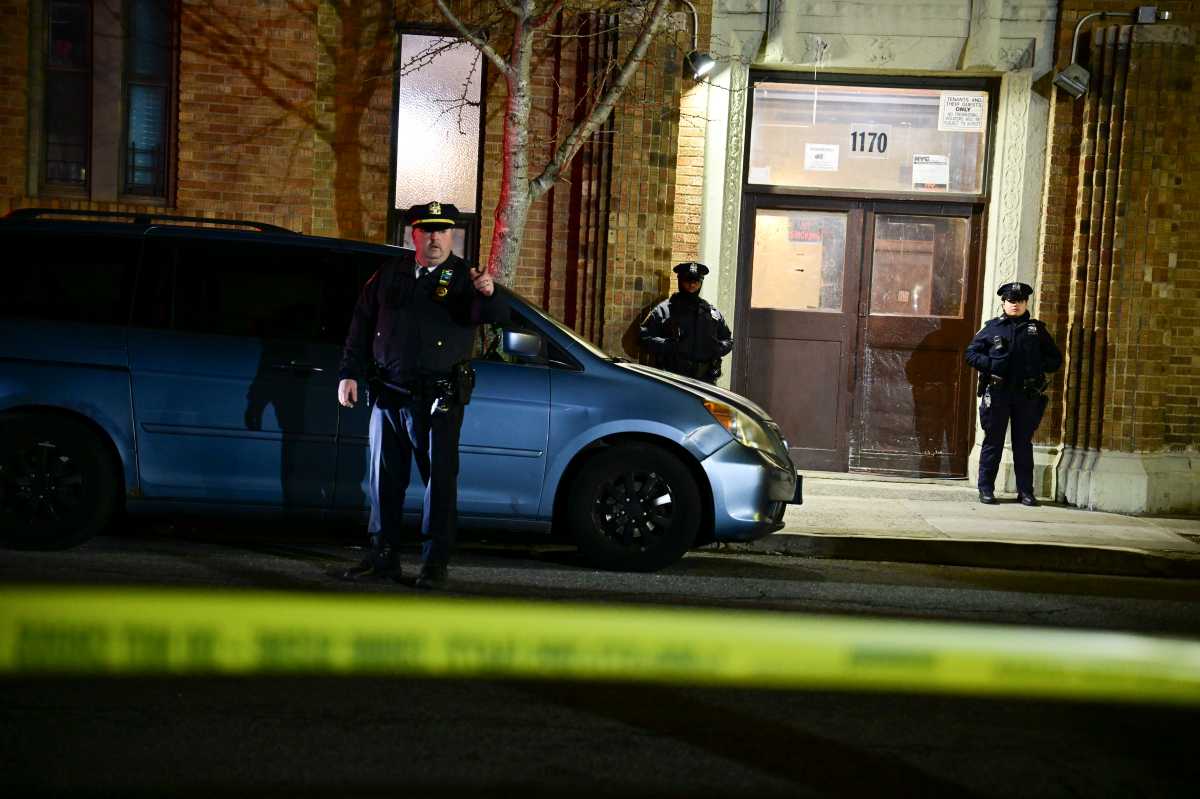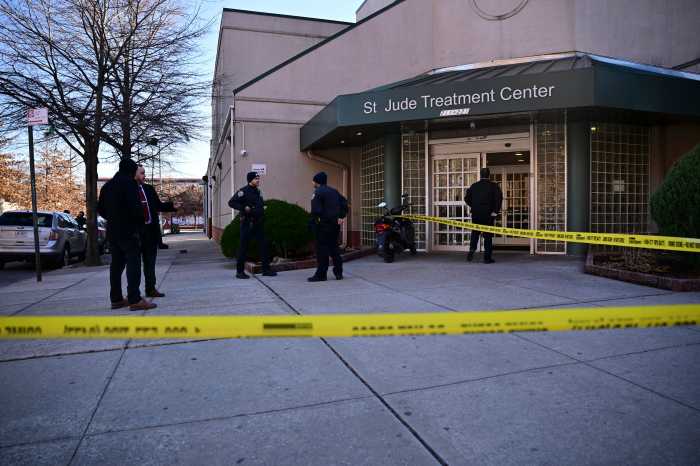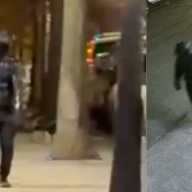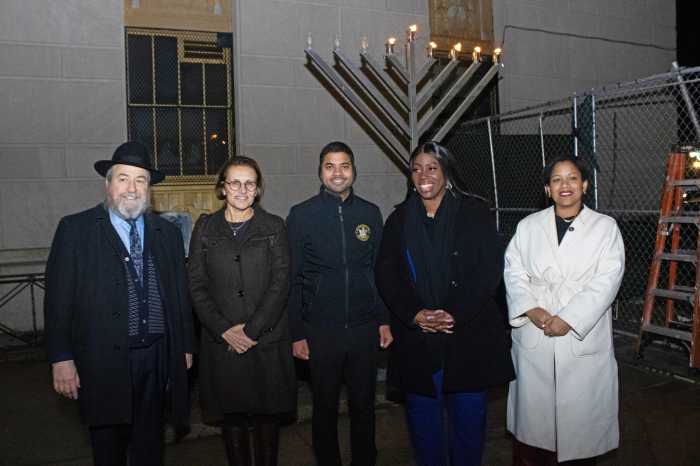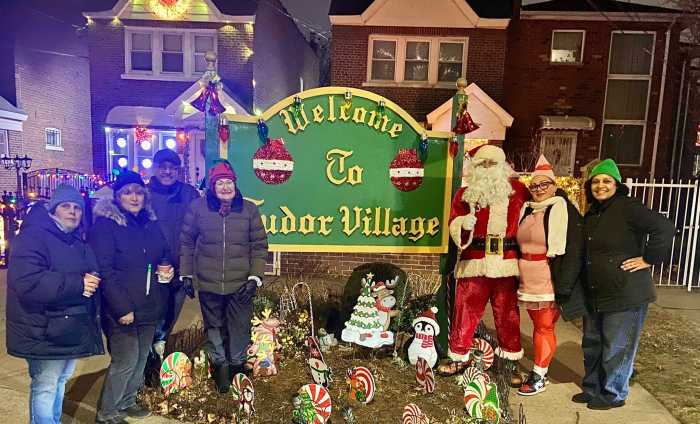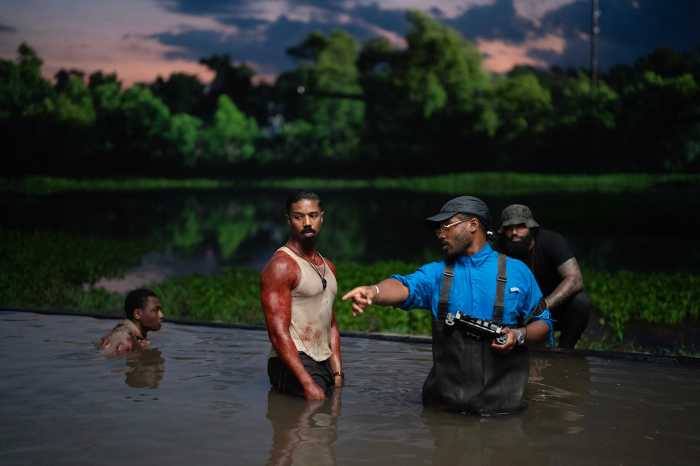Syria’s civil war, which has killed more than 200,000 citizens and caused nine million people to flee their homes, ripples out to New York City, where anguished, grieving families and religious congregations agonize over the fate of loved ones and how to help survivors to safety.
“I have been trying to get my brother here for over three years,” but he seems lost in a morass of red tape, said Lama Ali, 44, a hair designer of Syrian descent who lives in Dyker Heights.
Her 34-year-old brother, Sady, lost his cafe and his livelihood in Damascus due to the war. While he made it to safety in Germany, “two of my cousins were killed,” in the last two years, she recounted: One cousin was shot to death by the Muslim Brotherhood or the government forces.
Another cousin was kidnapped by men who demanded a large ransom. Her family could only muster a portion of the amount. After torturing her cousin for two-and-a-half months, “they hung him,” she said. As for his captors and killers, “we have no idea who they were.”
Ali would like to bring over about 20 members of her family — including her father, a lawyer — from Syria, where they are trapped by vicious factional fighting in what is now a national war zone. Where will she put them all? “My heart is large, even if our house is small,” she said.
The Syrian congregants of Bay Ridge’s Masjid Oulel-Albab go to Imam Tareq Yousef “to find a place” for arriving relatives but housing is impossibly scarce, said Yousef, who begged the government to speed up the process allowing Syrians to assimilate in the U.S.
“Most of them are business people or educated. Give them their security papers and a work permit: They will work! They will not be begging in the street!” he exclaimed.
Muslims are not the only Syrians suffering. Members of the Christian minority have also been targeted for torture, kidnapping and death by extremists in a nation that now lacks infrastructure, medicines and basic services.
“We had two bishops who were kidnapped: We don’t know where they are. Many priests have been killed or kidnapped,” said Father Antoine Rizk, a Melkite Catholic priest at Park Slope’s Church of the Virgin Mary.
Most of Rizk’s congregation of 850 families is Syrian or of Syrian descent. His parishioners are trying desperately to help their remaining family members “but the problem is it is very hard to get them to the United States and sometimes impossible,” Rizk explained. The priest is constantly offering masses for murdered family members and consoling members of his anxious, grieving flock.
Even when Syrians do manage to escape to the U.S. (“usually on a tourist visa” after reaching Lebanon or Jordan) they have been traumatized, divested of all their belongings and professional identities, and lack support. “They can’t prove anything,” and don’t have Social Security numbers, proof of their educations and degrees, working papers or a fluency in English, Rizk explained: “They were engineers but now they work as waiters. The system (here) is very tough,” said Rizk who would like to see the immigration process speeded up and immediate, tangible assistance — housing and jobs — provided to arriving refugees.
More than four million people have fled Syria since civil war erupted in 2011, but the U.S. has accepted fewer than 2,000 refugees from the country.
Secretary of State John Kerry announced in September the U.S. will accept 85,000 refugees from around the world next year and 100,000 in 2017.
President Barack Obama ordered his administration to accept at least 10,000 refugees from Syria within the next year; 18 mayors — including NYC Mayor Bill de Blasio — responded by sending an open letter to the president pleading for him to accept more refugees from the war-ravaged nation and pledging to help resettle them.
It takes 18 to 24 months to process a refugee case from referral or application to arrival in the U.S., but “we are looking to see if we can accelerate the process without cutting corners on security,” said a spokeswoman for the U.S. Department of State in an email. “The U.S. has been accepting and will continue to accept Syrian refugees from refugee camps and urban areas in the Middle East, not from Europe,” said the State Department spokeswoman in her emailed statement.
Syrians already here can file for asylum within a year of arriving or file for Temporary Protected Status, said a spokeswoman for the U.S. Citizenship and Immigration Services.
New Yorkers with family in Syria go through tortuous contortions to help stranded relatives; raising money for smugglers and arranging couriers to get needed medicines to sick patients via Lebanon, hoping funds and care packages are not purloined or diverted.
The family of Farris Albasir, 51, a travel concierge who lives in Willowbrook, Staten Island, contributes to help his brother’s wife and three children, stuck in Latakia, where they shelter in a home crowded with 20 people. They’re lucky: “They have water,” but still need to eat. “We all chip in and help. Everyone who has extra at the end of the month, we send it,” said Albasir. The money is sent “Western Union to Lebanon. Then people take a commission of, like, five percent,” to pass it on to its destination, he explained. His brother, Hazem, 45, made it to a refugee camp in Germany. “My plan is to visit a lawyer and see if I can sponsor him and bring him and his wife and three kids,” said Albasir.
Syrians are not only mourning the deaths of loved ones, but the annihilation of a lost past and the obliteration of their identity. Many of the priests still in Syria, noted Rizk, refuse to leave because “it’s a holy land. In Damascus, St. Paul was converted. If we leave these holy places, we leave our roots and the roots of Christianity,” Rizk explained.
Albasir, a Muslim who moved to the U.S. in 1991 was raised in Al-Qamishli, “the Christian capital of Syria” once known for its beautiful Christmas parades.
“We all lived — Muslims and Christians and Kurds — in harmony. There were a lot of mixed marriages,” he recalled. But now, said Albasir, “it feels like Afghanistan.”
Kurds, government forces and militia groups are all battling for control of his ancestral home and vying to rule the rest of the country, but for the people caught in war’s crossfire, said Albasir, “all sides are bad.”



